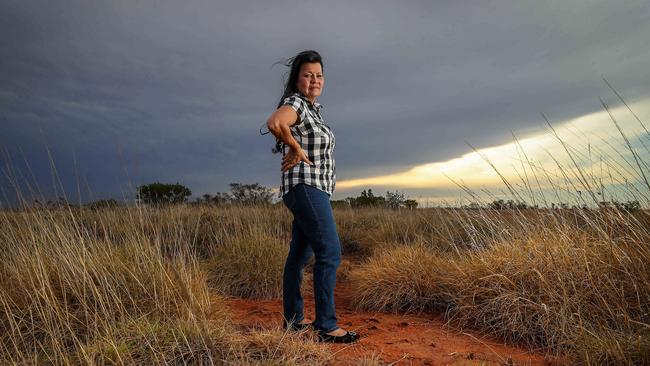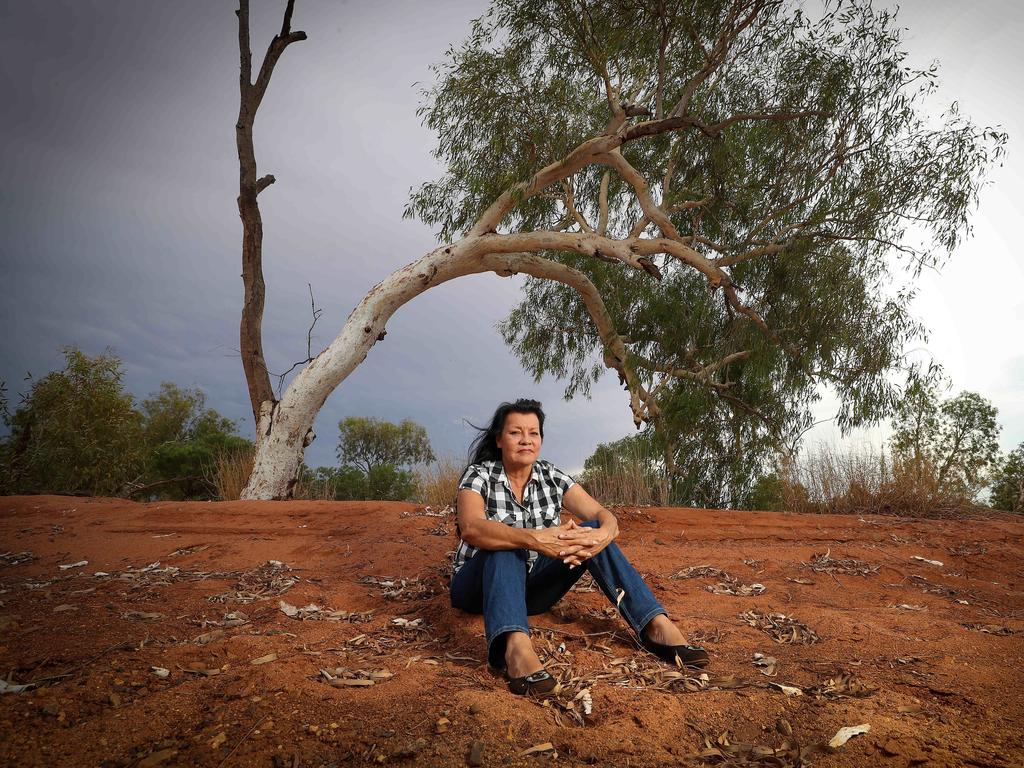‘All I got for asking questions was a lot of grief, says Sharon Westerman
On the spinifex rangelands of the Pilbara, Sharon Westerman is a Njamal woman quietly taking in her mother’s country.

On the spinifex rangelands of the Pilbara, Sharon Westerman is a Njamal woman quietly taking in her mother’s country.
Out here, she is probably best known as a pain in the side of anyone who stands in the way of her relentless push for answers over millions of dollars in royalties that flow from mining companies into a charitable trust for her people each year.
Ms Westerman’s persistent queries about where the money goes and who benefits are at the heart of broader concerns about Aboriginal trusts and corporations, a world littered with horror stories about white rent-seekers, turf wars over native title claim areas and complaints that too much power rests with too few Indigenous families.
Ms Westerman told the West Australian government in 2016 that her people were exploited for the commercial gain of highly-paid trust managers and it cost $500,000 in legal fees to get rid of one firm.
“This mismanagement has affected the Njamal people’s ability to achieve the social and economic outcomes that we have sought from our native title agreements,” she wrote.
Her campaign resulted in a government inquiry and promised new laws to allow the state attorney-general to remove trust managers who were gouging fees or otherwise mismanaging Aboriginal money.
At the same time, the Njamal People’s Trust has got costs under control and now delivers hardship grants to buy items, including groceries, for Aboriginal people based on need.
The changes have come at a personal cost to Ms Westerman. Last week in the Federal Court she saw off a long-running effort by the Njamal People’s Trust to bankrupt her over her attempt to force a forensic audit in 2017.
The State Solicitor’s Office is still pursuing her for costs over that case, which she lost about the time the state government saw fit to delve into the finances of the trust themselves.
Ms Westerman also fought stealing charges that a government inquiry found were supported by her enemies in and around the trust. These four charges were dropped in April due to lack of evidence.
She sees herself as an example of why Aboriginal people rarely speak up about the mismanagement of royalty money.
“All I got was a lot of grief,” she told The Australian. “By pursuing me for costs in the matter, the State Solicitor’s Office and the WA government is sending a very clear message to Aboriginal people about what happens when you try to get trustees of Aboriginal trusts to show some level of accountability for the expenditure of our native title benefits.”
The Njamal people’s current trust manager, Andrew White, began working with them about the time the inquiry was announced.
He said the trust had been trying to do too much at once, including funding programs in which it had little or no experience. “We needed to just bring things back in order,” he said.
Mr White said the trust had also stopped handing out lump sums of money or supermarket credits to traditional owners, something police said had coincided with alcohol-related violence because supermarket credits could be used at bottle shops owned by Coles or Woolworths.
The trust wanted to concentrate on helping people in poverty but could not find a way of doing so that was entirely traceable, so it developed its own software, he said: “We now know down to the last dollar where the hardship money is spent.’’
The trust’s 750 beneficiaries — Njamal people from the Port Hedland area — can apply for help on a wide range of things, from having their car repaired, to sending their child to Perth for a sports carnival or buying a fridge.
The senior lawyer who conducted the government inquiry into the dysfunction at the trust, Alan Sefton SC, thanked Ms Westerman in a letter acknowledging her contribution and the toll on whistleblowers generally.





To join the conversation, please log in. Don't have an account? Register
Join the conversation, you are commenting as Logout